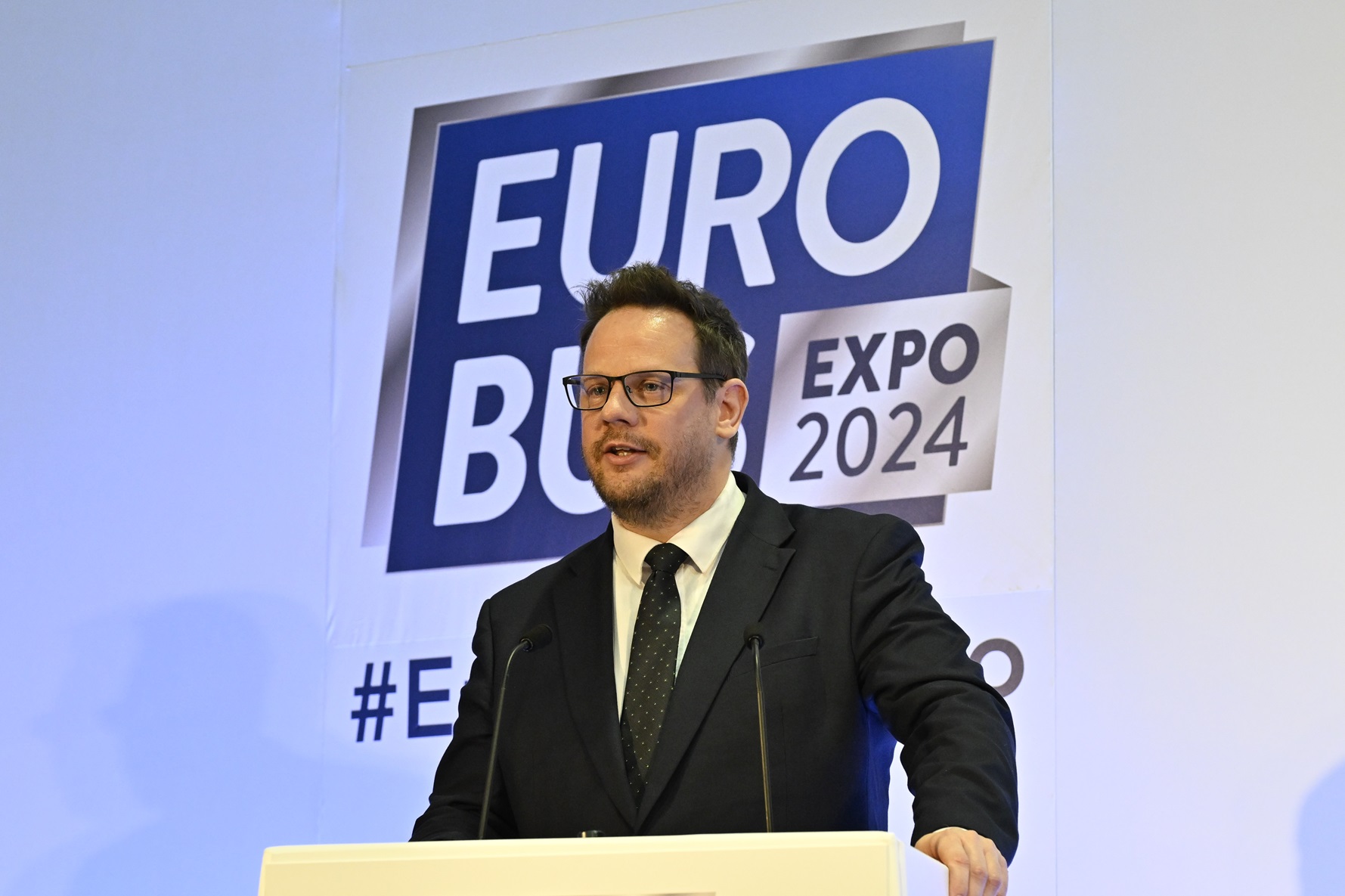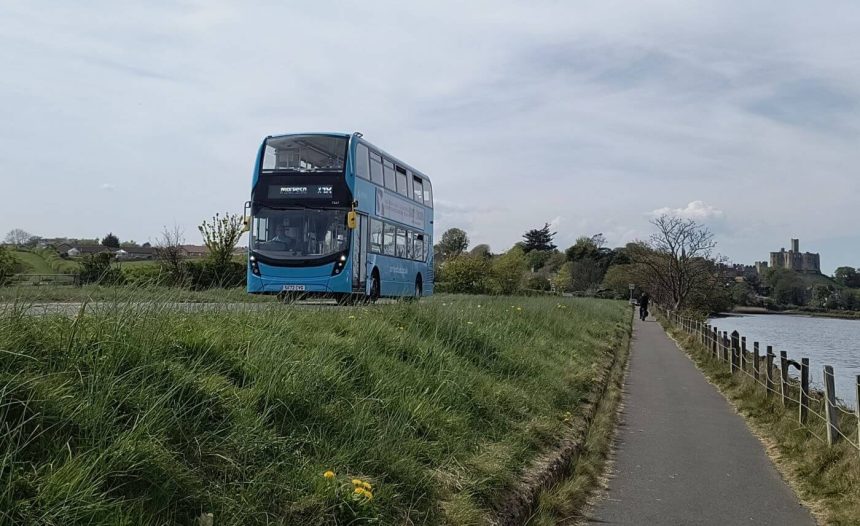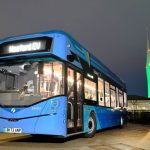Various models for bus franchising in rural areas are set to be explored by the Department for Transport (DfT) by means of government-supported pilot schemes.
The government is seeking to work with interested local transport authorities to develop bus franchising outside of the mayoral authorities, as highlighted by Local Transport Minister Simon Lightwood, and DfT Director for Buses and Inclusion Stephen Fidler at a Transport Committee hearing on 14 May.
At the oral evidence session of the “Buses connecting communities” inquiry, Mr Lightwood stressed his belief that bus franchising could work in rural areas.
Rural bus franchising pilot schemes will show ‘we have models that can work for all cases’
Earlier, in its written evidence, DfT referred to plans to develop at least two “alternative” models through pilots, whereby the department would “contract external commercial and legal support to produce template documents and best practice for future LTAs to adopt and follow”.
The learnings and tools from the pilot schemes for rural bus franchising would be made available in real time through the Bus Centre of Excellence and otherwise, Mr Lightwood said at the inquiry.
He repeated that the newly realised model of bus franchising used for Greater Manchester’s Bee Network would probably not be appropriate for all. He again cited Jersey as a model which could be more suitable for other areas, including rural ones.
If you already have a lot of tendered services, it is about making them properly integrated with the rest of the network so that you do not necessarily have a big-bang, overnight approach, as in Manchester – Stephen Fidler
Mr Fidler said his department was considering at three or four different models for franchising in rural areas. Expanding on the trials, he says: “What we really want to do is work with some real authorities in some real places, based on the real situations that they are facing, to develop these further and make sure that they work in a rural context here.”
Adding that good integration with demand-responsive transport could prove part of the key, he highlighted the argument that franchising could be more straightforward and attractive for local authorities which already financially support a large proportion of the area’s bus services.
“If you already have a lot of tendered services, it is about making them properly integrated with the rest of the network so that you do not necessarily have a big-bang, overnight approach, as in Manchester,” he says.
“It feels to us like something that could be done on a much more transitional basis with the kinds of skills, resources and capability that an authority has.”
Elaborating on another possible model, he says: “The extreme end of the spectrum is what we tend to call ‘micro-franchising’, which is about, not doing a whole area, but dealing with a specific problem in a specific place, to make sure that you solve that local problem and come out with the right kind of bespoke solution.
“We are keen that we develop models that work for the skillsets and the context of more rural authorities.”

The pilots would help ensure “we have models that can work for all cases”, says Mr Lightwood.
Although the differences between Jersey and much more rural areas have been pointed out by the industry, the minister adds: “In all honesty, I appreciate the geographical restrictions in Jersey, but it has rural areas.
“That is a great example of where you can achieve franchising with a small number of staff, and because of profit share, working with the local provider, you can benefit from commercial experience and skills as well, to supplement the work done in the LTA.”
He refers to criticism around the cost to the taxpayer of the franchising process in Greater Manchester. “What is often quoted when it comes to the Manchester model is that there is something like £700 million to £1 billion,” he says. “Our analysis is around £135 million. That took them a long time. It was complicated.
“They were the trailblazer, and good for them. They have shown what is possible. We have now done a lot of work on streamlining and making the process quicker, easier and cheaper, and there is also the support we are offering to local areas to support them through that process.”
‘Socially necessary” bus services discussed
Moves to protect “socially necessary” bus services was heavily discussed at the session. Mr Lightwood said he would investigate whether the rules around socially necessary services to be brought in with the forthcoming Bus Services Bill could be extended to franchised areas rather than just Enhanced Partnerships.
He defended against the claim the Bill was vague with regards to a definition of a socially necessary service.
“It is up to local areas… to set what they think is socially necessary in their specific communities, rather than having us tell them what we think it should be,” he says.
“It will be different in different areas; there will be different challenges, demographics and geographies. That will be the crux of it.”
Three years is the hope for long-term funding
Mr Lightwood underlined that he was hopeful that the government would be able to move to a long-term funding approach, dependent on the outcome of the Spending Review, which will be published next month.
“We are looking at three-year, day-to-day spending, and four years in terms of capital spending. That seems to be the direction of travel,” he says.
“Every couple of years, I believe, there will be a multi-year funding settlement. That will give greater assurance and certainty.”
Local focus for fare schemes?
Comments from Mr Lightwood failed to fuel recent suggestions that the fare cap scheme in England, which is due to end in December, could be succeeded by a nationwide fares initiative targeted at young people.
He repeated during the session that local authorities could use government funding to offer their own concession schemes.
Giving local areas the flexibility to design that for their individual needs is important – Simon Lightwood
He adds: “In 73 out of 85 areas, commercial bus operators are also putting in place concessionary fares to incentivise bus use.
“Of course, we want to see more people using bus; we want to see it as being accessible and affordable as possible.
“There is a theme here: giving local areas the flexibility to design that for their individual needs is important.”


























